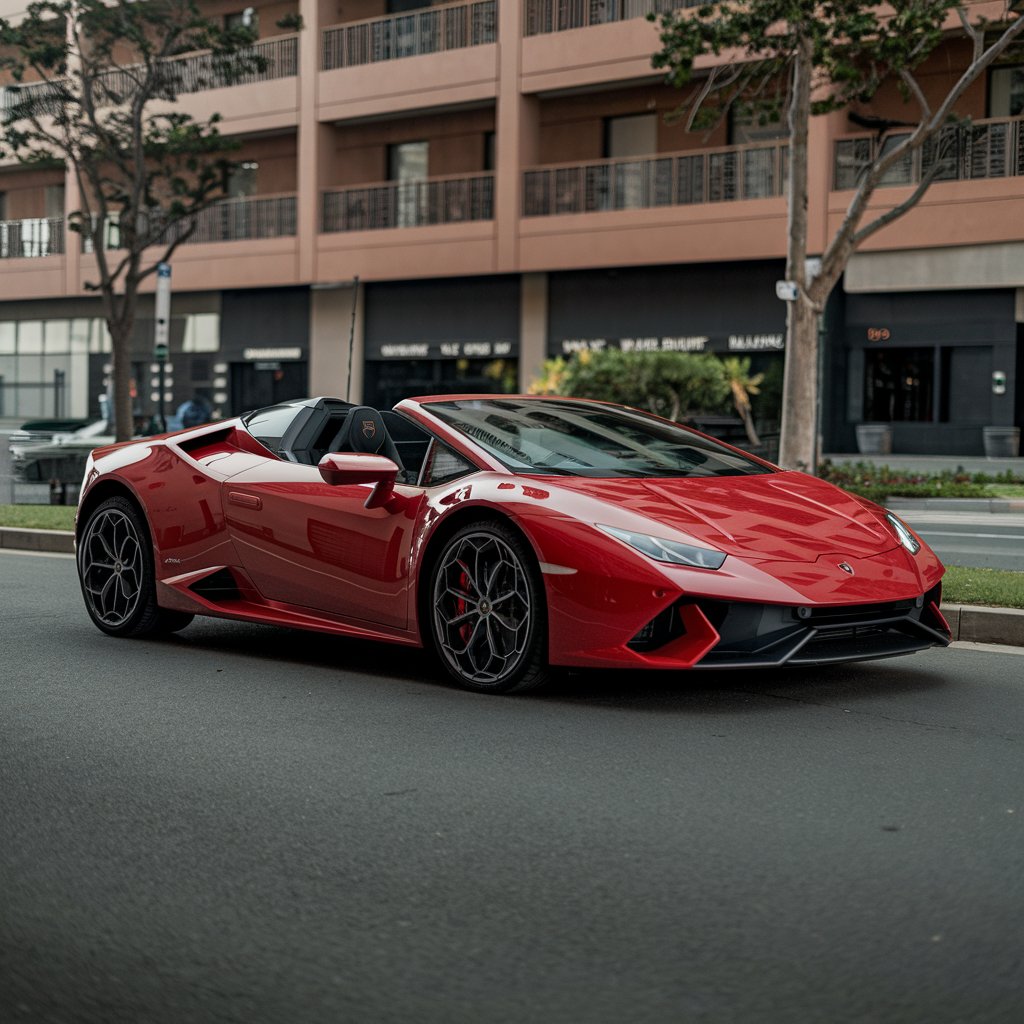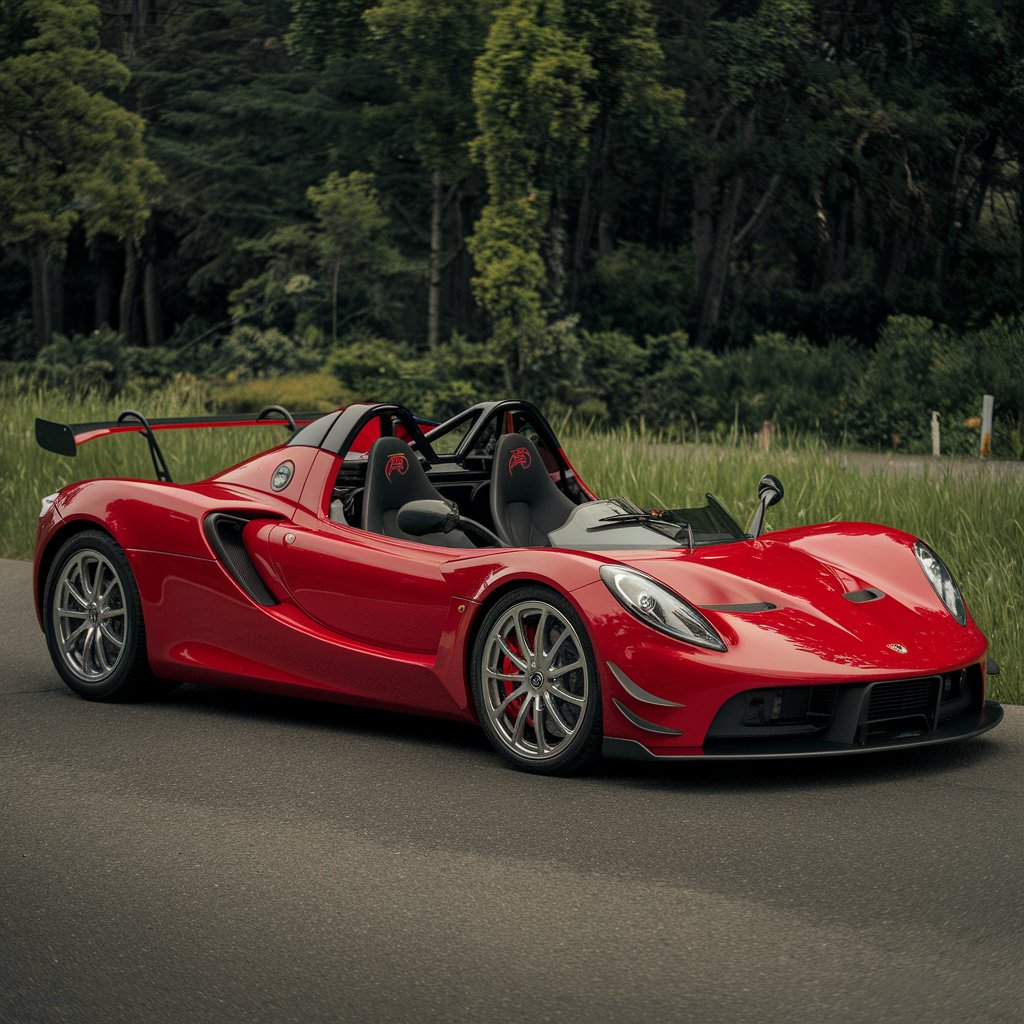What Makes High-Performance Vehicles Different?
High-performance vehicles are designed with a focus on speed, handling, and power. These cars often feature advanced engineering and high horsepower engines, allowing for faster acceleration and better overall performance. While this makes them thrilling to drive, it also increases their risk profile in the eyes of insurance companies.
Increased Risk Factors
Insurance providers classify high-performance vehicles as higher risk for several reasons:
- Speed: These vehicles are built for speed, which increases the likelihood of accidents.
- Handling: High-performance cars are often pushed to their limits on the road, raising the potential for collisions.
- Expensive Repairs: The cost of repairing or replacing parts of a high-performance car is significantly higher than that of a standard vehicle due to specialized components and technology.
These factors mean that drivers of high-performance vehicles are more likely to pay higher premiums compared to those who drive standard cars.
How Car Insurance Works for High-Performance Vehicles
When insuring a high-performance vehicle, insurance companies consider several unique aspects compared to standard cars. The two primary concerns are the cost of repairs and the increased likelihood of theft or accidents.
Higher Repair and Replacement Costs
Since high-performance cars feature sophisticated and sometimes rare components, repairs can be extremely costly. Additionally, if the car needs to be replaced after an accident, its high market value means that insurance companies have to pay more. This significantly increases the premium that the driver will need to pay.
Premiums Based on Vehicle Specifications
Insurance premiums for high-performance cars are often based on detailed vehicle specifications such as:
- Engine power and horsepower
- Acceleration speed
- Vehicle age and model
Risk of Theft and Accidents
High-performance vehicles are often prime targets for theft due to their high value and desirability. In addition, because they are built for speed, they tend to be involved in more serious accidents, which results in higher claims for damages.

Factors Impacting Car Insurance Premiums for High-Performance Cars
Several factors contribute to the cost of insurance for high-performance vehicles:
Vehicle Power and Speed
Cars with higher horsepower and top speeds are seen as more likely to be involved in accidents. These vehicles also face steeper premiums as they are often driven more aggressively.
Driver Experience and History
Insurance companies assess the driver’s experience and history, including their record of traffic violations and accidents. Drivers with clean records may see slightly lower premiums, but even experienced drivers can face higher costs due to the nature of their vehicles.
Location and Driving Conditions
Where you live and drive your high-performance vehicle plays a significant role in determining premiums. Urban areas with more traffic and higher accident rates can lead to increased costs. Similarly, regions prone to extreme weather can make insuring a high-performance car more expensive.
Commonly Insured High-Performance Vehicles
High-performance vehicles come in many forms, but some of the most commonly insured categories include:
Sports Cars
These cars, designed for agility and speed, include popular models like the Porsche 911, Chevrolet Corvette, and Ford Mustang.
Luxury Vehicles
Luxury brands like BMW, Audi, and Mercedes-Benz often produce high-performance models that blend power with sophistication.
Exotic and Supercars
Brands like Ferrari, Lamborghini, and McLaren produce some of the most expensive and high-performance vehicles on the road. These cars often require specialized insurance due to their value and performance capabilities.
Types of Coverage Needed for High-Performance Cars
When insuring a high-performance vehicle, drivers should consider comprehensive coverage that goes beyond basic liability. Essential types of coverage include:
Comprehensive Insurance
This covers damage from non-collision-related incidents such as theft, vandalism, or weather-related damage.
Collision Insurance
Covers the cost of repairs if your car is damaged in an accident.
Liability Coverage
This is required by law in most states and covers damage to other vehicles and property if you’re at fault in an accident.
Uninsured/Underinsured Motorist Coverage
Protects you if you’re involved in an accident with a driver who lacks sufficient insurance.
Specialized Insurance for High-Performance Vehicles
Some insurance companies offer specialized policies tailored to high-performance vehicles. These policies may include:
Agreed Value Insurance vs. Actual Cash Value
With agreed value insurance, the owner and insurer agree on the car’s value upfront, which can ensure you receive adequate compensation if the car is totaled. In contrast, actual cash value policies may result in lower payouts due to depreciation.
Coverage for Modifications
Many high-performance vehicle owners make modifications to enhance speed or appearance. It’s important to have these modifications covered under your policy.
Track-Day Insurance
For those who take their high-performance cars to the track, specialized track-day insurance is available to cover accidents or damage that occurs while driving in a controlled environment.
Cost Comparison: High-Performance vs. Standard Vehicles
The cost of insuring a high-performance vehicle is significantly higher than insuring a standard car. Premiums can be 2-3 times more expensive, depending on the car’s specifications and the driver’s profile.
Examples of Insurance Premiums for Popular High-Performance Cars
- Ferrari 488 GTB: $5,000+ annually
- Lamborghini Huracan: $6,000+ annually
- Porsche 911 Turbo: $3,500+ annually

Outline
H1: Introduction
- Definition of high-performance vehicles
- Why high-performance vehicles require specialized insurance
H2: What Makes High-Performance Vehicles Different?
- High horsepower and advanced engineering
- Increased risk factors such as speed and handling
- Why insurance companies view them as higher risk
H2: How Car Insurance Works for High-Performance Vehicles
- The role of higher repair and replacement costs
- Premiums based on vehicle specifications
- Risk of theft and accidents
H3: Factors Impacting Car Insurance Premiums for High-Performance Cars
- Vehicle power and speed
- Driver experience and history
- Location and driving conditions
H3: Commonly Insured High-Performance Vehicles
- Sports cars
- Luxury vehicles
- Exotic and supercars
H2: Types of Coverage Needed for High-Performance Cars
- Comprehensive insurance
- Collision insurance
- Liability coverage
- Uninsured/underinsured motorist coverage
H3: Specialized Insurance for High-Performance Vehicles
- Agreed value insurance vs. actual cash value
- Coverage for modifications and customizations
- Track-day insurance for performance cars
H2: Cost Comparison: High-Performance vs. Standard Vehicles
- Average premiums for high-performance cars
- Comparing insurance costs for similar models with different specs
- Why standard vehicle insurance is less expensive
H3: Examples of Insurance Premiums for Popular High-Performance Cars
- Premium costs for brands like Ferrari, Lamborghini, and Porsche
- Differences in premiums based on make, model, and year
H2: How to Save on Insurance for High-Performance Vehicles
- Bundling insurance policies
- Taking defensive driving courses
- Limiting mileage and usage-based insurance
H3: Discounts Specific to High-Performance Vehicles
- Safe driving discounts
- Anti-theft device discounts
- Garage-kept vehicle discounts
H2: Finding the Best Insurance Provider for High-Performance Vehicles
- Specialized insurance companies for performance cars
- Factors to consider when choosing a provider
- Importance of working with brokers for high-value vehicles
H3: Comparison of Major Insurance Providers
- Providers that specialize in high-performance car insurance
- Top companies offering competitive premiums for luxury vehicles
H2: Legal Requirements for Insuring High-Performance Vehicles
- Minimum coverage laws by state
- Additional coverage required for expensive vehicles
H3: State-Specific Rules for High-Performance Cars
- States that have special regulations for high-powered vehicles
- How state laws affect premiums
H2: Conclusion
- Summary of the main factors affecting insurance for high-performance vehicles
- Tips for finding the best deal on car insurance
H2: FAQs
- Why is car insurance more expensive for high-performance vehicles?
- What are the best insurance providers for high-performance cars?
- Can I insure modifications on my high-performance vehicle?
- Is track-day insurance necessary for performance cars?
- How can I lower my premiums for a high-performance vehicle?
Introduction
High-performance vehicles, often associated with luxury, speed, and advanced engineering, represent the pinnacle of automotive design. From sleek sports cars to powerful supercars, these vehicles are crafted for performance, not just daily commuting. However, owning such a vehicle comes with unique challenges, particularly when it comes to car insurance. Due to the increased risks and higher costs associated with repair and replacement, insuring a high-performance vehicle is more expensive than standard cars.
In this article, we’ll explore the nuances of insuring high-performance cars, compare insurance options, and discuss ways to save on premiums while ensuring your prized vehicle is adequately protected.
